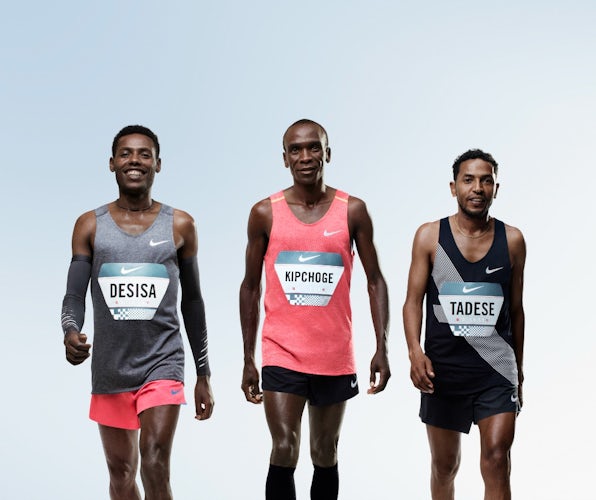Facebook, Amazon, Warburtons: Everything that matters this morning
Good morning and welcome to Marketing Week’s round-up of the news that matters in the marketing world today.

Facebook introduces measures to increase transparency around advertising
Facebook has unveiled new measures to allow users to see what adverts are running in a move to increase transparency. Facebook’s chief operating officer Sheryl Sandberg revealed the new tools yesterday alongside a blog post outlining how the new measure will make it easier “to root out abuse” and increase accountability.
A tool called View Ads allows users to see every active ad purchased on Facebook, Instagram, Messenger, and its partners. Users will be able to see ad creative and copy and can report ads even if those ads aren’t shown to them.
People will also be able to gain more information on company pages even if they don’t advertise, such as seeing recent name changes and the date the page was created.
It is also rolling out labeling of political ads, which it introduced in the US in May ahead of the mid-term elections and promised to do next month for elections in Brazil.
Facebook says: “By shining a bright light on all ads, as well as the Pages that run them, we’ll make it easier to root out abuse – helping to ensure that bad actors are held accountable for the ads they run.”
READ MORE: A New Level of Transparency for Ads and Pages
Amazon set to take on pharmaceutical businesses
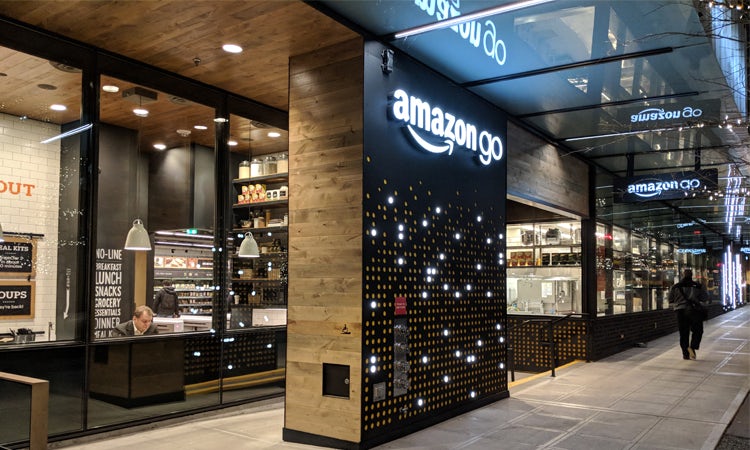
Amazon is set to take on pharmacies with the purchase of online drug distributor PillPack.
PillPack is a US subscriptions service for prescription drugs, with analysts suggesting the deal could shave billions off the value of three major pharmacy chains.
The prescription market is huge in the US and stocks were hit by the news. Shares in Walgreens Boots Alliance – which owns Boots in the UK – were sent tumbling on Thursday afternoon.
READ MORE: Pharmacy chains catch a chill as Amazon moves in
Warburtons hit by CO2 shortage
Warburtons has halted production at two of its four production plants due to the CO2 shortage in Europe. Warburtons supplies 1.5 million crumpets a week to UK consumers, packaged using carbon dioxide to give them longer shelf life and prevent mold.
A spokeswoman for Warburtons says: “We are working hard to ensure availability but we are already experiencing shortfalls and this will only continue to get worse unless supply is returned to normal very soon.”
The CO2 scarcity has already forced beer, fizzy drink and meat firms to curb production and Coca-Cola has “temporarily paused” some production because of the shortage.
READ MORE: CO2 shortage spreads to crumpets as Warburtons hit by crisis
LV= promotes marketer to managing director

LV= General Insurance, the UK’s third largest car insurer, has promoted Heather Smith to managing director of the direct business
Smith will continue to lead marketing and digital teams but will also be responsible for creating and delivering the direct business strategy.
Her appointment follows Selwyn Fernandes’ decision to leave following 12 years at the company. Smith has been with the company since August 2016 as digital transformation director. She was previously be marketing director for Aviva Direct.
READ MORE: LV on humanising the digital experience
Steve Treloar, chief executive of LV= General Insurance, says: “I’m absolutely delighted to have appointed Heather to this role. She has extensive experience of the market and its opportunities and in bringing together marketing, digital and direct, it will give us the opportunity to efficiently drive digital change through the business.”
Smith adds: “I’m very happy to be taking on this new role at what is an exciting time for our General Insurance business… I’m looking forward to building on the success of the last 12 years.”
The appointment is subject to regulatory approval but Smith is expected to start on the 2 July 2018.
Deliveroo couriers receive payout in employment rights case

Deliveroo has reached a settlement over employment rights that will see the company pay 50 of its couriers a six-figure sum.
The riders argued that they had been unlawfully denied rights, including the legal minimum wage and paid holiday, after being labelled self-employed contractors.
The case was to be the latest in a string of similar employment rights claims surrounding the gig economy that have impacted brands including Hermes, Uber and Addison Lee. A number have ruled that gig economy drivers and couriers have “worker” status, which offers them more rights than independent contractors.
One insider told Sky the result would have “no direct impact on Deliveroo’s fleet of moped drivers and cyclists nor the company’s business model of using self-employed riders to deliver food” and that the settlement costs significantly less than the legal costs.
READ MORE: Deliveroo forks out to riders in latest gig economy rights claim
Thursday 28 June

Ticketmaster admits major cyber attack
Ticketmaster has admitted a major data breach affecting up to 40,000 customers, putting people at risk of fraud or identity theft.
However, the global ticketing group could face questions over whether there was a delay in disclosing the breach as it has emerged that some UK banks, including digital bank Monzo, have known about the incident since early April.
Ticketmaster has now contacted customers. It says people who bought tickets between February and 23 June 2018 are at risk, with some customers already reporting fraudulent activity. including money transfers on Xendpay and Uber gift cards and Netflix subscriptions being purchased.
People’s names, addresses, email addresses, phone numbers, payment details and Ticketmaster login details were all stolen.
READ MORE: Identity theft warning after major data breach at Ticketmaster
Instagram launches ‘Lite’ app to expand global growth

Instagram has quietly launched ‘Instagram Lite’ for Android phones as it looks to drive growth in the developing world.
The app, which appeared in the Google Play App Store yesterday without any fanfare, is not as large as the original version – 573 kilobytes compared to 32 megabytes – allowing users to “save space” on their device and “download it quickly”, according to the description.
Users will be able to filter and post photos to the feed or Stories, watch Stories, and browse the Explore page, but not share videos or send direct messages.
Mobile users in the developing world are often on older phones with less storage and slower network connection, so the app is designed to address some of these barriers and appeal to a wider audience.
READ MORE: Instagram Lite quietly launches to find a billion more users abroad
Disney’s Fox bid gets go-ahead

Disney’s $71.3bn (£54.2bn) bid for 21st Century Fox has been cleared by US regulators, removing a final barrier to the deal, through which it hopes to beef up its content offer to compete with the likes of Netflix.
As part of the agreement, the Walt Disney Company will take control of Fox’s movie and TV show franchises, but it will have to sell Fox’s 22 regional sports networks in the US due to competition concerns. Regardless, the media giant has said it is “pleased” with the decision made by the Justice Department’s antitrust division.
The deal will see Disney take on Fox’s entertainment assets, while Fox will retain its news and sports divisions, including the Fox News Channel, creating a new company for this part of the business.
READ MORE: Fox-Disney merger cleared, but sports networks must be sold
GDPR triggers sharp rise in complaints to regulators

Regulators have seen a sharp rise in the number of complaints from consumers in the first month since the General Data Protection Regulation (GDPR) came into force as people become more aware of their rights.
The UK’s Information Commissioner’s Office (ICO) has seen an increase in breach notifications from organisations and more data protection complaints, and it only expects this number to rise going forward.
Complaints have been rising elsewhere in Europe too, with French data protection regulator CNIL recording a 50% rise in complaints since the law came into effect on 25 May, compared with the same period last year.
An ICO spokesperson told the Guardian: “It’s early days and we will collate, analyse and publish official statistics in due course. But generally, as anticipated, we have seen a rise in personal data breach reports from organisations. Complaints relating to data protection issues are also up and, as more people become aware of their individual rights, we are expecting the number of complaints to the ICO to increase too.”
READ MORE: European regulators report sharp rise in complaints after GDPR
Holland & Barrett appoints global CMO

Holland & Barrett has hired Caroline Hipperson as global CMO of the heath and wellness retailer which has 1,100 stores globally, including 800 in the UK and Ireland. She joins from her role as global vice president at Bacardi.
In one of her first moves as marketing boss at the retailer Hipperson has appointed Pablo as creative and advertising lead, taking over from FCB Inferno.
The agency has been tasked with developing brand strategy and campaigns for the brand with the focus on staff knowledge and its health and wellness product offer, the first of which is due to launch this summer.
Hipperson says: “At Holland & Barrett we really care about helping people live a healthy and happy life and treading light on the earth while doing so. We believe Pablo is an agency that genuinely shares our brand values and vision.”
Wednesday, 27 June
Google rebrands its ad tech stack as it looks to streamline services
Google is rebranding its ad software, getting rid of the DoubleClick and AdWords brands as it looks to streamline services and make it easier for advertisers to understand what it offers.
The rebrand will see Google Ad Words, its tool for buying ads, renamed as Google Ads. It will offer inventory on Google search, YouTube, the Google Play app store and across three million third-party websites.
Google is also bringing together its DoubleClick ad products and Google Analytics Suite under a single brand called Google Marketing Platform. The hope is this will help marketers better plan, buy, measure and optimise digital media and customer experience in one place.
Finally, Google is bringing DoubleClick for Publishers and DoubleClick Ad Exchange together under a new programmatic platform dubbed Google Ad Manager.
Google hopes the changes will simplify its ad offering, while pushing its commitment to transparency and controls advertisers trust.
Sridhar Ramaswamy, senior vice president of Ads at Google, says: “This is just the beginning of the next chapter in our platforms story. We’re committed to building solutions that help you achieve your marketing goals while meeting consumers’ high expectations for privacy, transparency, and control.”
Uber awarded short-term contract after winning appeal over London ban

Uber has won its appeal over Transport for London’s (TfL) decision to ban it from operating in London last year. The court found that Uber is “fit and proper” to hold a licence and awarded it a probationary 15-month licence. Uber had requested a shorter licence, rather than the five-year licence it previously held, and has agreed to pay TfL’s costs for the appeal.
Uber was stripped of its licence in September last year after TfL raised concerns over public security and safety implications following a number of complaints that it was failing to properly screen drivers, as well as concerns over how it reported crimes and the alleged use in the US of software that stopped it being detected by regulators. It said immediately that it would appeal the decision, and has been able to operate while the appeal has been ongoing.
As part of its appeal, Uber said it recognised it had made mistakes in the past but said it had embarked on changes, including to its culture and governance, led by new CEO Dara Khosrowshahi.
Uber UK general manager Tom Elvidge says: “We are pleased with today’s decision. We will continue to work with TfL to address their concerns and earn their trust, while providing the best possible service for our customers.”
READ MORE: Uber wins court appeal over London ban
High street struggles hit Costa Coffee as sales fall
The struggles on the UK high street have impacted Costa Coffee, with its owner Whitbread revealing that like-for-like revenues at its UK business fell by 2% year on year in the three months to May. That was down from a 0.3% decline in the previous quarter as it suffered from “footfall weakness in traditional shopping locations”, despite good growth in airports and train stations.
However, total sales at the UK’s largest coffee chain were up 5.2% thanks to new store openings, with Costa now refocusing its network on “high footfall and convenient locations”. Costa has 2,400 UK coffee shops, as well as 1,400 overseas and around 8,200 vending machines globally.
Whitbread, which is planning to demerge Costa from the rest of its business, says the coffee shop chain remains “highly profitable”. Costa is expected to be spun off and listed as a separate business by 2020.
READ MORE: Costa UK coffee sales fall by 2%, says owner Whitbread
Facebook reverses blanket ban on cryptocurrency ads

Facebook has reversed its total ban on cryptocurrency ads, although it has put in place strict rules to govern which brands can advertise and what can be advertised.
The changes will see ads that promote cryptocurrency accepted from pre-approved advertisers, although even they won’t be able to promote binary options or initial coin offerings. Companies that might want to run such ads have to pre-apply and be able to provide information including licenses and whether they trade on a public stock exchange.
Rob Leathern, product manager director at Facebook, says: “Given these restrictions, not everyone who wants to advertise will be able to do so. But we’ll listen to feedback, look at how well this policy works and continue to study this technology so that, if necessary, we can revise it over time.”
General Electric spins off healthcare business in turnaround bid
General Electric is to spin off its healthcare business and divest its stake in oil services firm Baker Hughes in a move that will break up what was once the most valuable company in the US.
The slimmed down company will focus on jet engines, power plants and renewable energy. The hope is the move will reward shareholders, which have seen the 126-year-old company’s stock lost more than half its value over the past 20 years.
CEO John Flannery is a General Electric veteran who took on the job role in August last year with a mandante to revamp the company. He describes the decision as a “culmination of 10 years of observations I’ve had about the company”, according to Reuters.
The plan is to spin off the profitable healthcare unit over the next 12 to 18 months, and sell the Baker Hughes stake within three years. While General Electric has not ruled out selling the healthcare division, it would prefer to see it traded publicly.
READ MORE: GE breakup leaves it with best and worst performers
Tuesday, 26 June
Clarks boss quits after misconduct investigation
The chief executive of Clarks, Mike Shearwood, has been forced to resign following a number of complaints about his behaviour.
In a statement, Clarks said: “Clarks recently learned that aspects of Mr Shearwood’s conduct, conversations and expressions fell short of the behaviours expected of all its employees on a number of occasions.
“In these circumstances the board has accepted Mr Shearwood’s resignation.”
Shearwood joined the family-owned business in 2016 from Karen Millen, where he was also CEO.
The board has not commented on the nature of the allegations. Senior independent director Stella David will act as interim CEO until a replacement is found.
READ MORE: Clarks boss resigns after complaints spark misconduct probe
Tesco to ditch ‘irrelevant’ Brand Guarantee scheme
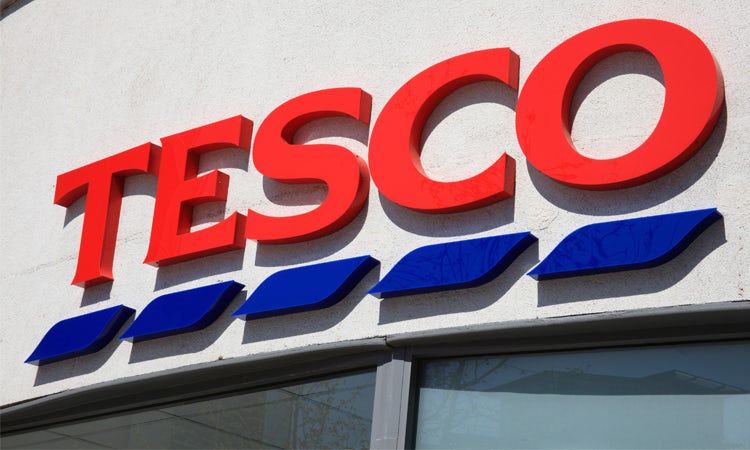
Tesco will get rid of its price-matching Brand Guarantee scheme next month, as it looks to re-invest in everyday low pricing and offer customers “more straightforward value for money” on the shelves.
Less than one in eight customers currently use the three-year-old scheme, which gives an instant refund if a customer buys 10 or more items and the branded items are cheaper at Sasinbury’s, Asda or Morrisons.
Tesco’s chief customer officer, Alessandra Bellini, says: “Since Brand Guarantee launched in 2015, we have continued to invest in simpler, lower everyday prices. As a result, the scheme is far less relevant for our customers today, and so we are withdrawing it as we focus on offering customers even more straightforward value for money at the shelf edge.
“In recent weeks, we’ve already reduced the prices of over 260 popular products, including own brand and branded favourites, and we’ll continue to work hard to offer our customers great quality food at great prices.”
READ MORE: Tesco to scrap its Brand Guarantee scheme
Asda treats suppliers the worst out of Big Four supermarkets
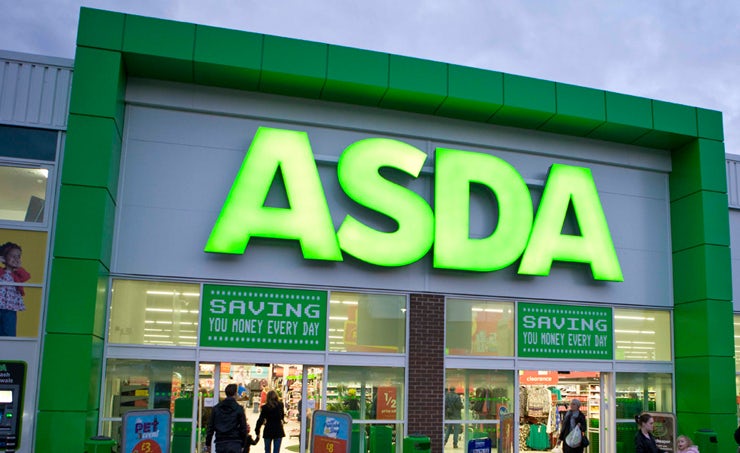
Research carried out by YouGov and the Grocery Code Adjudicator, the UK’s grocery watchdog, has found that Asda treats suppliers the works out of the UK’s biggest supermarkets.
8% of suppliers said Asda “rarely” or “never” complies with the GCA’s rules – the second year in a row the supermarket has fared worst.
Meanwhile, Tesco came out on top with 97% of suppliers saying it complied “mostly” or “consistently well”.
Out of the 10 UK supermarkets that the code applies to, Aldi was the best performing supermarket overall, while Sainsbury’s – last year’s top performer – came fourth, Lidl sixth and Iceland last.
The results are based on 1,000 supplier responses, with delays in payment topping the list as the biggest issue (19%).
The survey’s adjudicator, Christine Tacon, says: “This year only four out of ten suppliers reported having experienced a Code-related issue – down from a high of eight out of ten in 2014, and a huge improvement on 2017 when 56% of suppliers reported having experienced an issue.
“My 2018 survey tells a very positive story and it is no coincidence that the four most-improved retailers this year have each faced increased GCA scrutiny and heightened levels of GCAengagement through investigations and case studies.”
READ MORE: Asda treats suppliers the worst out of Big Four grocery chains
World Cup and Father’s Day boost grocery sales
Promotions around the World Cup and Father’s Day helped to drive a +1.5% increase in grocery sales over the last four weeks, according to the latest data from Nielsen.
27% of all grocery value sales came from special offers around the World Cup. Branded beverages in particular were heavily promoted with 43% being sold on promotion. In the week ending 16 June, sales of gin and tonic water rose +46% and +21% respectively, as did colas and flavoured carbonates, up +5% and +4%.
For Father’s Day, 15% of households claimed to buy extra items, compared with 19% for Mother’s Sunday, making it the seventh most-celebrated event and on a par with Valentine’s Day. The week ending 16 June also saw an uplift in gifting categories such as DVD/BluRay (+9%), spirits (+6%), rotisserie chicken (+6%) and greetings cards (+6%).
Over the twelve weeks ending 16 June, Asda had the most improved year-on-year sales growth of the top four supermarkets (+2.7%) followed by Co-operative (+2.1%), displaying the trend towards convenience. Iceland had the best growth figures overall (+3.4%), outside of the discounters.

In light of Tesco’s announcement that it will be moving away from its brand guarantee, Mike Watkins, Nielsen’s UK head of retailer insight, says simpler pricing is a trend that will continue to benefit shoppers.
“Shoppers are benefiting from simpler pricing strategies, easier to understand promotions and overall everyday low prices,” Watkins says. “Tesco’s commitment to replace their Brand Guarantee in a few weeks’ time follows this trend we see across the industry and similar decisions taken by Sainsbury’s and Morrisons some time ago.”
Coca Cola suspends some production amidst CO2 shortage

Coca Cola has “temporarily paused” production at some of its plants as a result of a shortage of CO2 gas.
In a statement, Coca Cola said: “We are currently responding to an industry-wide issue that is impacting the supply of CO2 in the UK.
“Our focus is on limiting the effect this may have on the availability of our products. During this time we temporarily paused some of our production lines for short periods, however there has been no disruption to supply to date and we are continuing to fulfil orders to our customers.”
The drinks giant says it is working closely with suppliers, partners and customers on a number of solutions as the situation develops.
The news comes a week after the makers of Heineken’s John Smith’s Extra Smooth and Amstel said supplies had been hit as a result of the shortage, with frozen food deliveries also being affected.
READ MORE: CO2 shortage: Coca-Cola pauses production at some plants
Monday, 25 June

Uber begins appeal to retain its London licence
Uber will appear in a London court today to prove that it is “fit and proper” to hold an operator licence in the capital.
The ride hailing app claims that it has made “significant changes” since Transport for London refused to renew its licence in September on grounds of public safety and security. The business has been allowed to carry on operating in London while awaiting appeal.
During the intervening nine months Uber has changed the way it reports crimes, going directly to the police rather than logging criminal complaints with Transport for London. Drivers are now only allowed to use the app in the region where they hold a private hire licence and their working hours are being more tightly regulated.
The hearing at Westminster Magistrates’ Court is expected to last several days.
READ MORE: Uber to begin appeal over London licence denial
Investors bet against WPP after Sorrell departure
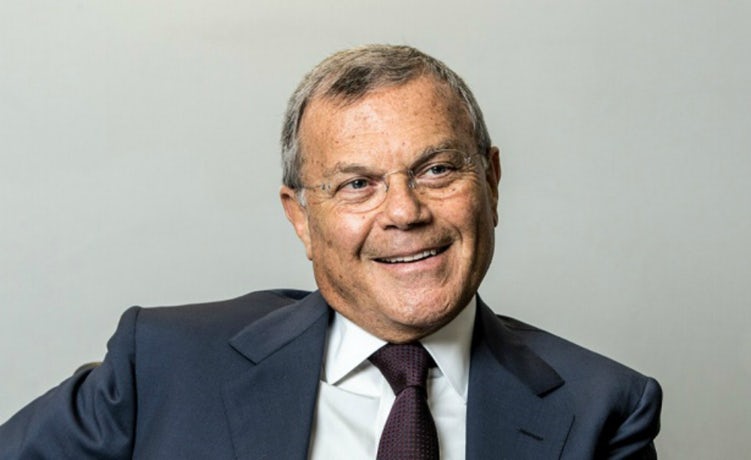
Hedge fund investors have allegedly made a £1bn bet against advertising giant WPP following the departure of its founder Sir Martin Sorrell in April.
According to reports in The Times, the percentage of WPP shares on loan, which is a proxy for short selling on the financial markets, has surged over the past year from close to zero to more than 6% of its share capital, as revealed by figures from IHS Markit.
These are turbulent times for the world’s biggest advertising group, which earlier this month saw a third of shareholders refuse to back its pay and bonus scheme, which would guarantee Sir Martin Sorrell a £20m pay out. Furthermore, 17% of shareholders did not support the re-election of chairman Roberto Quarta.
Speaking at Cannes Lions last week, Sorrell “strenuously denied” claims that he had misappropriated WPP funds, claiming that his situation within the company had become “untenable”, due to “leaks” at the “highest levels”.
Sorrell described his new venture S4 Capital as a “peanut” compared to the giant holding companies, but said that it would approach business “totally from a digital angle”.
READ MORE: Billion-pound bet raises pressure on ailing WPP
Morrisons tackles plastic pollution with roll out of paper bags

Morrisons is introducing brown paper bags for loose fresh fruit and vegetables, a move that will see the retailer cut 150 million small plastic bags from its supermarkets every year.
The roll out begins today, with paper bags entering all Morrisons’ 493 UK stores by the end of the summer. The bags are made from 100% recyclable paper and feature a see-though paper strip so shoppers and staff can see the contents.
A launch signatory of the UK Plastics Pact, a voluntary pledge by supermarkets and food producers to cut their use of plastic packaging, Morrisons said it was responding to customers’ concerns by bringing back the paper bags.
The supermarket is also incentivising consumers to bring their own containers to the butchers and fishmongers counters with the offer of 100 loyalty card points.
READ MORE: Little green bag: Morrisons turns to paper in war on plastic
Netflix fires head of communications for use of racist language

Netflix has sacked its chief communications officer Jonathan Friedland for using racist language during conversations with colleagues.
Friedland, who had worked at the streaming giant for seven years, is said to have used a racial slur in a descriptive sense during a discussion about the use of offensive terms in comedy. He later described himself as feeling “awful about the distress this lapse caused”.
In an internal memo Netflix CEO Reed Hastings said that while Friedland had contributed greatly, his “descriptive use of the N-word on at least two occasions at work showed unacceptably low racial awareness and sensitivity, and is not in line with our values as a company”.
The initial incident allegedly took place “several months ago” in a PR meeting about sensitive words. Then a few days later, in a discussion with HR about the incident, Friedland used the term again in front of two black employees and then did not mention the incident in a meeting with the Black Employees @ Netflix group.
His failure to mention the incident to the group was perceived as a “failure to care or accept accountability”.
READ MORE: Netflix’s head of communications Jonathan Friedland sacked over ‘N-word’
Facebook embraces digital wellbeing with ‘time well spent’ features

Facebook is embracing the trend for digital wellbeing with new tools for the Facebook app designed to help users monitor the amount of time they spend on social media.
The tools will also enable users to set time limit reminders and change the frequency of notifications they receive from the site.
This move follows the announcement in May that Instagram is planning to introduce a “usage insights” feature to inform users how long they are spending on the app each day, as well as over an extended period of time.
The development of these features falls into a new strategy adopted by Facebook in January, focused on offering users “more meaningful interactions” by prioritising posts from friends and family on the News Feed, rather than businesses.
Facebook joins the likes of Apple, which in early June announced the launch of new features to limit users’ time on certain apps, including the introduction of greater parental controls. Meanwhile Google is set to launch a data centre later this year to show users how much time they are spending on apps on its smartphones.
READ MORE: Facebook to introduce ‘time well spent’ features for smartphones


